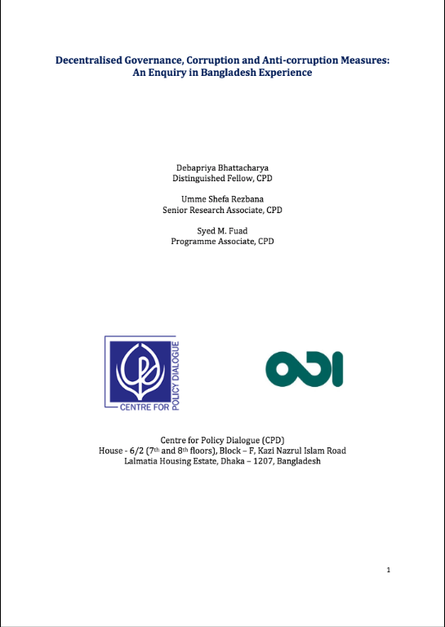
This report focuses on the decentralised governance, corruption and anti-corruption measures in the context of local government in Bangladesh and provides the empirical results, analytical findings and policy recommendations regarding these concepts. The study is based on the understanding that there are mixed effects of decentralisation on corruption and that both the types and dynamics of corrupt practices as well as the impact of different anti-corruption approaches may vary in different decentralised settings. In this connection, it investigates whether the existing system of local governance is competent enough to provide or sustain the transparency, effectiveness and accountability of its mandated functions. It also explores the forms of corruption at different levels of local government as well as the impact of different types of corrupt practices at the local level. Finally, it analyses whether national institutional and other anti-corruption initiatives/mechanisms at the local level are having an impact at the local government level.
The study finds that conflicting provisions regarding administrative authority affects the effective functioning of the governance of the local government institutions and the contradictions in provisions of relevant Acts exacerbate confusion regarding the actual scope of authority of the LGIs. Among different forms, bribery and nepotism are found to be the most common forms of corruptions in the three sectors surveyed. Existing anti-corruption measures by the ACC and the stipulated transparency, accountability and participatory mechanisms are also not found to be efficiently practised at the local level.
This report is produced as part of a research project on “Multi Level Governance, Decentralization and Corruption” initiated by the Overseas Development Institute (ODI), London and implemented in partnership with the Centre for Democracy and Development (CDD), Lagos and Centre for Policy Dialogue (CPD), Dhaka.